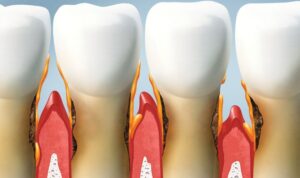Welcome to our blog post on the importance of oral cancer screenings! Did you know that oral cancer is one of the most deadly forms of cancer? That’s why it’s crucial to get screened regularly, even if you don’t have any symptoms. In this article, we’ll cover everything you need to know about oral cancer and how you can protect yourself from this life-threatening disease. So sit back, relax, and let’s dive into the world of oral health together!
What is Oral Cancer?
Oral cancer is a type of cancer that develops in the tissues of the mouth or throat. It can occur on the lips, tongue, cheeks, roof, or floor of your mouth, gums, and even in your tonsils. This type of cancer can be life-threatening if it’s not diagnosed early.
There are two types of oral cancers: squamous cell carcinoma and salivary gland tumors. Squamous cell carcinomas are responsible for most cases and develop in cells lining the inside of your mouth. Salivary gland tumors develop in the glands that produce saliva.
The causes for oral cancer vary from excessive tobacco use to alcohol consumption and even exposure to certain viruses such as human papillomavirus (HPV). In addition to these factors, age also plays a role with those over 50 being at higher risk.
The Different Types of Oral Cancer
Oral cancer is a generalized term used to describe different types of cancers that can occur in various parts of the mouth, including the lips, gums, tongue, inner lining of cheeks and lips, and floor or roof of the mouth. Each type has its specific characteristics and may differ in their progression rate.
The most common type is squamous cell carcinoma that usually develops on the surface layer of tissues inside your mouth. It often appears as a white or reddish patch or sore that doesn’t heal for an extended period. Another form is Verrucous carcinoma that grows slowly in warty masses with finger-like projections.
Minor salivary gland carcinomas mostly affect people over 50 years old and tend to develop at the back of their mouths. While adenoid cystic carcinomas grow from both minor and major salivary glands located near jaws.
Oral lymphoma affects blood cells responsible for fighting disease-causing agents while oral melanoma affects skin pigment-producing cells known as melanocytes.
Understanding each type’s characteristics will help you identify potential symptoms early on so you can seek medical attention before it progresses further.
Symptoms of Oral Cancer
Oral cancer is a serious disease that affects thousands of people every year. It’s important to be aware of the symptoms so that you can catch it early and get treatment right away.
The most common symptom of oral cancer is a sore in your mouth that doesn’t heal within two weeks. This could be anywhere in your mouth, including on your lips, tongue, or gums.
Other symptoms include white or red patches in your mouth, difficulty swallowing or chewing, persistent ear pain, and a lump or thickening in your cheek.
How to Prevent Oral Cancer
Preventing oral cancer is all about taking the necessary steps to reduce your risk of developing this serious disease. One of the most important things you can do is to maintain good oral hygiene practices, such as brushing and flossing regularly. This helps keep your mouth clean and free from harmful bacteria that can cause oral cancer.
Another way to prevent oral cancer is by avoiding tobacco products, including cigarettes, cigars, and chewing tobacco. Tobacco use is a major risk factor for developing oral cancer, so quitting or never starting in the first place is crucial.
Limiting alcohol consumption is also important when it comes to preventing oral cancer. Excessive alcohol intake has been linked with an increased risk of developing several types of cancers, including those affecting the head and neck.
Summary
Oral cancer screenings are crucial for detecting early signs of this disease. Anyone can be at risk for oral cancer, regardless of age or lifestyle habits. It’s important to maintain good oral hygiene and visit your dentist regularly for check-ups and screenings
. By doing so, you’re taking an active role in preventing and fighting against this potentially life-threatening condition. Remember that prevention is always better than cure when it comes to any health issue, including oral cancer. So take care of your mouth, stay informed about the symptoms, and don’t hesitate to seek medical attention if you notice anything unusual or concerning in your mouth or throat area. Your dental professional will guide you through the process of screening and treatment options if needed. Stay healthy!






